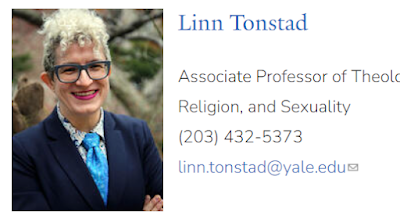Peter Speckhard, nephew of Father Richard Neuhaus, has retired from the Ovatines, a respite for elderly Lutheran liberals and a few other denominations. I got interested when I saw he was quoting Robert Benne, who was a conservative in the LCA. Shocking? Yes, I read his articles and skipped the rest, long ago. Benne knew and discussed higher education with the former Notre Dame Provost James T. Burtchhaell. The provost died in 2015. Burtchhaell was removed - for cause - as provost and priest. He and Benne exchanged views about the growing secular attitudes of religious schools, including Roman Catholic and Lutheran.
The LCA colleges were examples, which became more secular as they grew richer and more Left-wing. My mother attended Augustana when chapel was required daily, and they had a Christianity department, later a Religion department. When Christina and I went there, we either had weekly chapel or a program once a week. I skipped a few programs and was punished by being forced to attend twice as often, a program plus chapel once a week. Christina said, "I have been watching the punch cards and I saw your name coming up twice a week." She was paid to police attendance with punch cards to feed the college.
It is easy to see how faculty in the Religion department were hired for their academic degrees (PhD or go home) and their apostasy - Bultmann and Barth. That attitude infiltrated the college and now - though named after the Augsburg Confession - aka Augustana - they had no interest in anything more than a growing school.
Never mentioned in the courses was the Swedish American move to emphasize the Confessions and Lutheran identity. The Augustana pastors did not want to stay with the loosey-goosey General Synod. The great William Passavant supported Augustana's conservative stance. He was the one who paid for land on Lake Michigan for a seminary, because the Chicago Luther pastors were too stingy to get a seminary going. That land was sold to build a seminary in Maywood, and Wrigley Stadium was built on Passavant's land. No wonder that baseball fans had a special feeling for the Cubs.
Once the doctrinal rot begins, it is difficult to stop. Although I am not a fan of papal infallibility, the graduate class at Notre Dame's seminary - mostly Roman Catholic - were definitely against infallibility. A parish priest in the class was furious - "How can you call yourselves Roman Catholic if you deny the infallibility of the pope?" The Roman Catholic Frank Fiorenza was unruffled and eventually moved to an endowed position at Harvard.
It may be easier to see, the old Roman Catholic Church becoming much more like Unitarians, the college faculties fanning the flames.
Likewise, the hip liberal denizens of the ALPB Online Discussion Group (the Ovaltines) are watching in horror as their liberal colleges are going under without much dismay. They thought the bad leaven was good to improve upon the old ways. It was only a little change each time.
For example, at Augustana, lots of kids expected to have a position as a Lutheran pastor (men only) and Lutheran staff (teaching, music). The college not only has its own DEI department, but also boasts that their new president was already a DEI specialist! Oh my. The Bored of Directors were ecstatic about their new president, the first ever female president.
Where does this go? When ELCA was formed in 1989, the new organization stressed they would hire non-Lutherans as much as possible. I was standing in line (post LCA-ELCA) at an ELCA convention when one man asked a staffer about which Lutheran church he attended. The man said, "I am not a Lutheran." Diversity!
When I talked about the ELCA merger disaster, the WELS DP got very nervous, because he was on the ELCA Board for Relief. Though WELS was always bragging about fellowship and pure doctrine and shunning people, they did not want to offend ELCA with all the money the big boys seemed to have. The DP felt overshadowed by the power, might, and education of ELCA leaders.
Higher education is bound to become more DEI because it is infectious and difficult to remove.
 |
| New Augustana president. Will this DEI fad fade away? Missouri and WELS have quotas for their kin, a quirky kind of diversity, where only DNA matters. |








